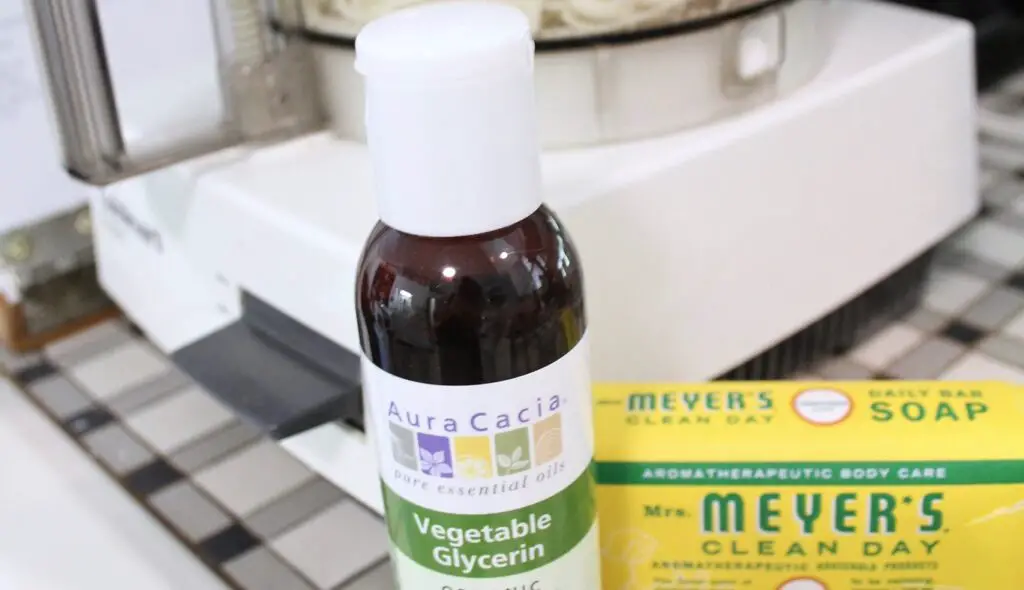Vegetable glycerin is a safe, natural additive that can be used as an alternative to sugar in many food products.
It has no known adverse effects and is often used as a sweetener for diabetic dog treats and other low-sugar foods.
Read on to learn more about vegetable glycerin.
What Is Vegetable Glycerin?
Vegetable glycerin, also known as glycerol or glycerine, is a clear, odorless liquid derived from vegetable oils or fats.
It has antimicrobial and antiviral properties and is an effective moisturizer that can help soothe dry skin. As a food additive, it is used to retain moisture and add sweetness.
Glycerin also functions as a solvent for flavors and colors in many foods. In the pharmaceutical industry, it serves as a lubricant in certain treatments and procedures.
In cosmetics manufacturing it is used to keep products from drying out, aid in product dispersal, soften the skin, and reduce irritation in hair care products.
Vegetable glycerin has been used safely for centuries due to its many beneficial properties. It is non-toxic and does not irritate the skin or cause allergic reactions when used topically.
Its humectant properties draw moisture from the environment, making it an effective moisturizer for skin and hair.
Glycerin also helps soften and protect the skin by forming a protective barrier on its surface that keeps impurities out while locking in vital moisture.
In addition, it can help keep the scalp healthy by controlling sebum production and protecting against dandruff.
Can Diabetic Dogs Have Vegetable Glycerin

Yes, diabetic dogs can have vegetable glycerin in moderation. Vegetable glycerin (also known as glycerol) is a sugar alcohol that has fewer calories and carbohydrates than regular sugar.
It is often used to sweeten food and beverages without adding additional sugar or calories.
When it comes to dogs with diabetes, it’s important to note that while vegetable glycerin can be beneficial in some cases, it should not be used as a substitute for glucose regulation or insulin therapy.
When feeding a diabetic dog food with vegetable glycerin, the amount consumed should be carefully monitored since even small amounts of this sugar alcohol could potentially cause adverse reactions in sensitive animals.
Additionally, veterinarians recommend avoiding giving your pet food that contains more than 5% vegetable glycerin.
As always, it is best to consult with your veterinarian before introducing any new food or supplement into your pet’s diet.
Does Glycerin Raise Blood Sugar In Dogs?
Glycerin does not raise blood sugar in dogs. This is due to the fact that glycerin is a sugar alcohol, meaning it is metabolized differently than actual sugars.
In fact, because of its low absorption rate and slow digestion, the body does not recognize glycerin as a source of energy and therefore does not increase your dog’s blood sugar levels when ingested.
Glycerin has been used for many years as an ingredient in pet foods and other products to provide sweetness without adding calories or raising blood sugar levels.
As such, it is considered safe for use in dogs with diabetes or other health conditions affecting their glucose metabolism.
Furthermore, glycerin can also be beneficial for dogs suffering from digestive issues because it helps reduce the rate of digestion and absorption, thus reducing gastrointestinal distress.
All in all, glycerin does not raise blood sugar levels in dogs and can be used safely as part of a balanced diet.
Can Dogs Ingest Vegetable Glycerin?
Dogs can safely ingest vegetable glycerin, as it is a natural ingredient used in many types of food products.
Vegetable glycerin is composed mostly of plant-based oils and sugar alcohols and helps to keep foods moist and give them their texture.
It also has antimicrobial properties that can help reduce the risk of bacterial contamination.
Additionally, vegetable glycerin contains only small amounts of calories, so it is not particularly harmful when ingested by dogs in moderation.
When giving your dog food with vegetable glycerin, it is important to make sure that the product does not contain any other ingredients that could be potentially toxic for your pet.
Additionally, always consult with your veterinarian before changing your dog’s diet or making any dietary modifications.
While vegetable glycerin is generally considered to be safe for canine consumption, it should not replace a balanced diet designed specifically for your pet’s individual needs.
Health Benefits of Vegetable Glycerin For Diabetic Dogs
- Improved Glucose Balance: Vegetable glycerin can help regulate blood glucose levels in diabetic dogs, allowing them to maintain a healthy balance of sugar and improve their overall health.
- Reduced Risk of Complications: Glycerin has been proven to reduce the risk of complications associated with diabetes such as retinopathy, neuropathy, and nephropathy. This is because it helps regulate the metabolic rate of glucose in the body and prevents hyperglycemia from occurring.
- Reduced Inflammation: Vegetable glycerin has natural anti-inflammatory properties which can help relieve pain and discomfort caused by inflammation associated with diabetes in dogs.
- Improved Digestion: Glycerin helps improve digestion in diabetic dogs by increasing the fluidity of the digestive system. This allows for easier absorption of nutrients, which can help reduce blood sugar levels and improve overall health.
- Improved Cognitive Function: Vegetable glycerin is known to increase cognitive function in diabetic dogs as well as other animals suffering from diabetes-related medical conditions. It helps to stimulate cognitive activity and thus improves their alertness and focus during activities.
- Natural Sweetener: Glycerin is a natural sweetener and can be used in place of processed sugars that are not recommended for diabetic dogs due to their high glycemic index values. This makes it an ideal substitute when trying to keep your dog’s glucose levels at a safe level.
In Conclusion
In general, when used in moderation and as part of a balanced diet, vegetable glycerin can be beneficial for diabetic dogs.
This sugar alcohol helps to sweeten food without the added calories and carbohydrates of regular sugar, potentially helping dog owners better manage their pet’s diabetes.





Leave a Reply